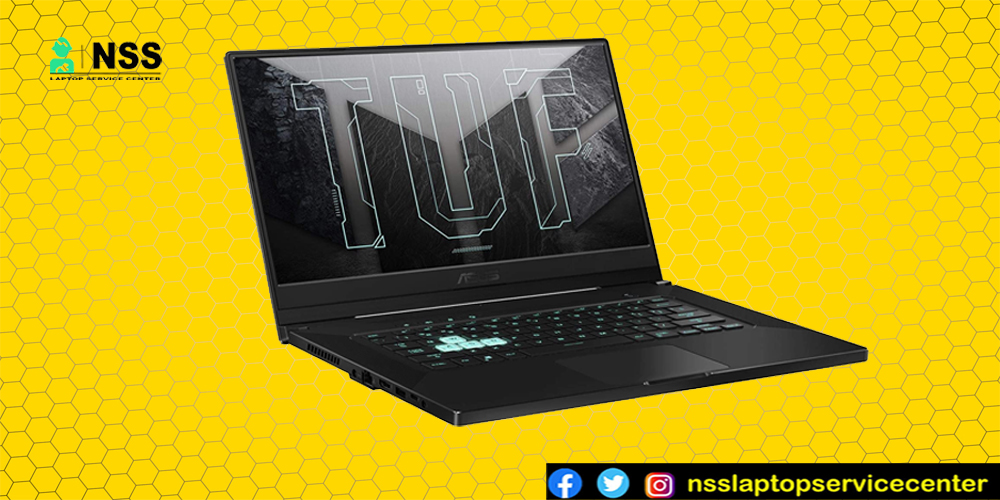
The ASUS TUF Dash F15 is one laptop you can group with this GPU; it does not perform decently and looks excellent. The minimalistic gaming laptop for the win! Considering that it has the RTX 30 series, it offers substantial value for its price point. But when upgrading your ASUS TUF F15 to boost its performance and capacity, you can go with DDR4 4GB, 8GB, 16GB, and 32GB memory upgrades.
The SSDs and DDR4 RAMs are assuredly computable with ASUS TUF F15.
Things that you can upgrade in your laptop-
Firstly, the RAM:
Unlike some thinner and lighter gaming laptops delivered by ASUS, the RAM is all slotted, with none of those non-upgradeable soldered RAM. ASUS casts in DDR4 2666 MHz RAM now, but due to the extent of the AMD Ryzen mobile processors, they only run at over 2400 MHz. That's a commodity to note when mastering your new DIMMs. You won't gain anything from spending further for faster RAM because 2400 MHz is the limit. To feed Chrome more, you can max out the memory support with 32 GB DDR4 2400 RAM (16 GB x 2).
The 2.5 drive
Two screws hold in the case for the 2.5 ″ drive. ASUS handed us three screws in the box, permitting you to secure your campaign in the case. Of course, with a 2.5 ″ bay, you can pick either quick SATA SSDs or a further storehouse but sluggish HDDs. We've our Phidisk Wrath Keeper, which we can slot into the 2.5 ″ bay. ASUS kept this2.5 ″ bay empty, so throwing in an a2.5 ″ drive won't want any migration or backup. Just throw in a new campaign, and you're set.
Cooling
While we're delighted with the temperatures we saw when we reviewed the ASUS TUF Gaming FX505D, it won't be that hard if you want to replace the thermal paste one day. Some laptops have their cooling system under the keyboard, making it extremely hard to reach, but this one ranks as one of the easier ones to service. Whether you want to repast for better performance or perform conservation and remove the dust in the heat sinks, you can. ASUS did equip it with its anti-dust system, but the heat sinks will still collect dust over time. So yep, laurels to ASUS for icing that the ASUS TUF Gaming FX505D is fluently maintained. One thing to note, however, is cables are running over the left heat sink, so you would need to detach the wires before removing the whole cooling assembly. One thing that you might realize is that ASUS used Bobby relatively freehandedly then. Most of their former designs had aluminum heat spreaders over the VRAM and VRM, but they decided to go full bobby this time for better heat dispersion.
Also Read: Which Ram Density Is Large
Also Read: Diskpart Clean Command
Taking off the bottom cover
There is an aggregate of 11 screws on the nethermost cover, five of which are shorter than the other six. We placed screws beside the holes they fit into so that you can use this print as a reference. Just in case you forgot how they go by. Now after removing all the screws, the clips are a bit more grueling to detach. I recommend pulling overhead from the hinder corners because there's a lip between the nethermost panel and the hinge medium. Be gentle, though, as this is plastic. Precisely slide your cutlet between the gaps and lift it off the body of the ASUS TUF Gaming FX505D once you have disentangled all the clips.
Once it's all off, you can take a breath and experience the beautiful discrepancy of the bare bobby heat pipes against the blue PCB in the ASUS TUF Gaming FX505D. The quantum of heat pipes is analogous to ASUS' advanced end models, presumably why we saw pleasant temperatures when we reviewed the laptop.
Repair Cost
If you want to know about the average repair cost of an ASUS laptop is 3000-5000 RS. Also, the cost of repairing depends on the problem arising in your computer. But you can take the help of an experienced professional service center to solve your concern with the best deal.
Final Word
Yeah, we're short of a SO-DIMM RAM stick, so we didn't precisely wholly tackle the ASUS TUF Gaming FX505D. But it now has 1920 GB of SSD storehouse versus the 512 GB that ASUS erected. It's upgradeable, and you don't have to jump through hoops to add further RAM, storehouse, or service the cooling system.
Frequently Asked Questions
Popular Services
- MacBook Battery Replacement Cost
- HP Printer Repair in Delhi NCR
- Dell Laptop Repair
- HP Laptop Repair
- Samsung Laptop Repair
- Lenovo Laptop Repair
- MacBook Repair
- Acer Laptop Repair
- Sony Vaio Laptop Repair
- Microsoft Surface Repair
- Asus Laptop Repair
- MSI Laptop Repair
- Fujitsu Laptop Repair
- Toshiba Laptop Repair
- HP Printer Repair Pune
- Microsoft Surface Battery Replacement
- Microsoft Surface Screen Replacement




